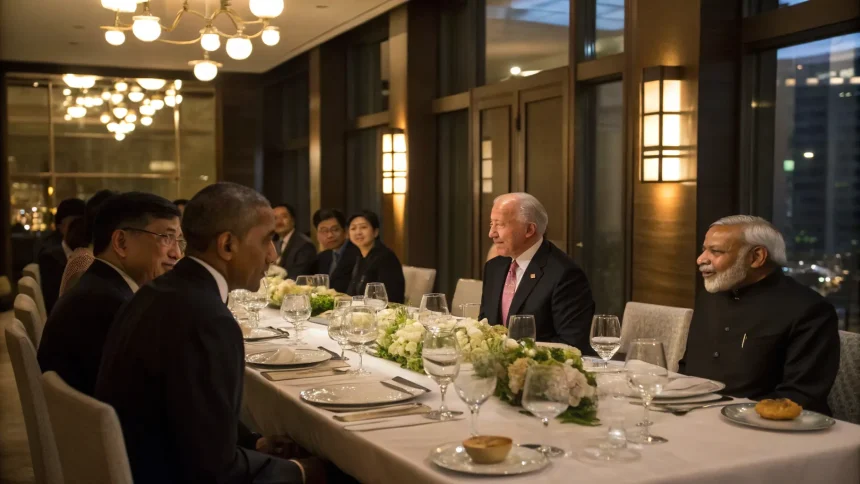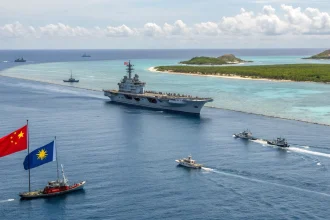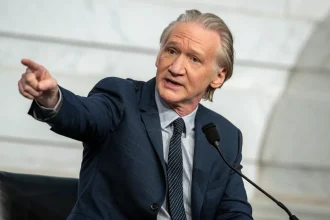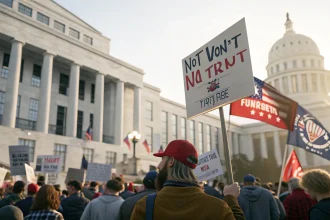A private dinner in Washington set the tone for the next phase of United States–India relations. The event honored President Trump’s new ambassador to India, Sergio Gor, and drew top officials and political allies on Monday evening. The Secretary of State offered a story during the dinner, adding a personal touch to a formal handoff at a key moment for both countries.
The gathering highlighted who will shape policy, what issues are on the table, when the next steps will occur, and why the stakes are high. India is a major partner on security, trade, and technology. An ambassador’s early signals matter, especially as both governments weigh priorities on defense ties, supply chains, and visas.
The Secretary of State told the story during a dinner for President Trump’s new ambassador to India, Sergio Gor, on Monday.
Why the Appointment Matters
Ambassadors help turn strategy into action. They meet ministers, brief Washington, and steer day-to-day diplomacy. A new envoy in New Delhi will confront trade frictions, defense cooperation, and digital policy all at once. The job also includes building trust with Indian officials while keeping Washington informed about domestic shifts.
The dinner signaled support from the highest levels. That can help an envoy open doors and move early initiatives. It also hints at a push to align on supply chains for critical goods and to manage competition in high-tech sectors.
What Is at Stake for Both Countries
Officials in both capitals see shared interests. They want steady maritime security in the Indo-Pacific. They seek reliable trade rules and clearer standards on data and digital markets. People-to-people ties are strong, driven by students, professionals, and families. Visa policy and consular services remain practical concerns.
- Security: joint exercises, defense sales, and intelligence coordination.
- Trade: tariffs, market access, and investment screening.
- Technology: telecom, semiconductors, and data governance.
- Mobility: skilled worker visas and student flows.
Each of these issues can advance cooperation or trigger friction. How the ambassador frames priorities in the first months will shape the agenda for years.
Signals From the Room
The Secretary of State’s anecdote, while not detailed publicly, served a purpose. Such moments often link policy goals to personal experience. They can set tone and expectations for staff and partners. They also send a message of unity to foreign counterparts watching for early cues.
Supporters of the appointment say a close White House connection could speed decisions. They argue that rapid action on visas and trade irritants would build goodwill. Critics see risk in political optics and urge steady diplomacy. They want more consultation with Congress and career experts to avoid missteps.
The Road Ahead in New Delhi
Next steps are familiar but important. The ambassador will meet Indian leaders, visit technology hubs, and speak with U.S. businesses. Early travel to manufacturing centers could highlight supply-chain goals. Engagement with universities and state governments would show attention to local priorities, not just federal ties.
Key early tests may include reducing backlogs for consular services and outlining a path on high-tech cooperation. Clear timelines and transparent communication will be watched closely by industry and civil society.
How This Fits a Larger Trend
Washington and New Delhi have deepened cooperation over the past decade. Joint military activities increased. Trade volumes grew, even amid disputes. Technology links expanded, from telecom trials to chip packaging. These shifts reflect shared concerns about reliable supply and secure networks.
Yet progress is uneven. Tariff disputes can flare up. Data rules and local content policies can surprise companies. Managing expectations is part of the envoy’s challenge. Success often comes from steady, incremental steps and frequent problem-solving.
Voices and Expectations
Policy analysts say a strong embassy team is essential. Business groups want clarity on taxes, digital rules, and import procedures. Education leaders seek smoother student processing. Human rights advocates urge consistent messaging on civil liberties. Balancing these views will take time and patience.
As one longtime observer put it, “Symbolism matters at the start, but delivery defines the job.” That means translating the warm tone of a Washington dinner into measurable outcomes in New Delhi.
The dinner affirmed support for Sergio Gor as he prepares for a demanding post. The moment offered a preview of priorities on security, trade, technology, and mobility. The main question now is execution. Watch for early moves on consular services, a clear technology agenda, and steps to reduce trade friction. Those will show whether the opening signals translate into durable progress for both countries.









